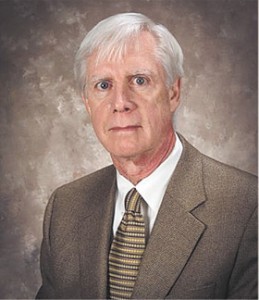
Before I start the “financial focus” part of this article, I want to say how much I appreciate this publication allowing local practitioners to provide information to its readers. I am glad that they did not feel that it was necessary to go to Ruston to find an advisor capable of educating the public. Now for the good stuff, based on information found in the April, 2015 Financial Advisor Magazine. Sometimes, even an adversarial Congress can agree on good legislation. The “ABLE” act of 2014 passed with bipartisan support and is being hailed as the most significant disabilities legislation since the American with Disabilities Act of 1990. This new law will create tax-free savings accounts for individuals with significant disabilities and will be housed under Section 529 of the IRC. These accounts cannot be set up or funded until the Treasury Department establishes rules—which they may have done by now.
These accounts, which will offer broader coverage than the 529 education savings plan, may be opened by or on behalf of a disabled individual in order to supplement, not supplant, benefits offered by private insurance, Medicaid and Medicare. Once established, the funds can be used to pay for disability related expenses, including housing, education, employment training, health care and transportation. The accounts can be set up for individuals diagnosed with a qualified disability prior to age 26, regardless of their present age. “Qualified” disabilities range from intellectual, developmental and physical impairments to mental illness. There will be regulations to provide guidance; hopefully, but not expected, they will be understandable by the general public.
After the account is set up, anyone can contribute to it and the beneficiary, a family member or another individual on the account can control it. Up to $14,000 in tax free contributions can be made to the ABLE account by an interested party. Obviously, this plan will not cover all of the expenses and financial burdens a disabled person will face over his or her lifetime. Also, it will not and should not replace the importance of a special needs trust, which does not limit contribution levels or allowable expenditures. However, it will be a valuable tool that will provide a new source of assistance to the disabled. Hopefully, Louisiana is working to bring this law into force for the people of this state. I just read a blog indicating that action has been taken, but have not verified the source. Maybe by the time this article is published, we will have good, positive news on this act.
As we move through our daily lives, it is so easy to disable what we hear and see on Sunday morning. To help us through the week, consider a prayer to help us to hear God when he speaks and follow where He leads us, being thankful for blessings, known and unknown, gifts made and to be made. Let us be aware that before God, “all hearts are open, all desires known, and no secrets are hid”. Barbara Brown Taylor writes: “In this divine dance, we are all dancing, God may lead, but it is entirely up to us whether we will follow.”
Although this information has been gathered from sources believed to be reliable, it cannot be guaranteed. This material is intended for informational purposes only and should not be construed or acted upon as individualized tax, legal or investment advice. FSC Securities Corp does not offer tax or legal advice. Securities, insurance and investment advisory services offered through FSC Securities Corporation, member FINRA/SIPC and a registered investment advisor 3416 North Blvd, Alexandria, LA 71301, (318) 448-3201. The views expressed are not necessarily the opinion of FSC Securities Corporation.









